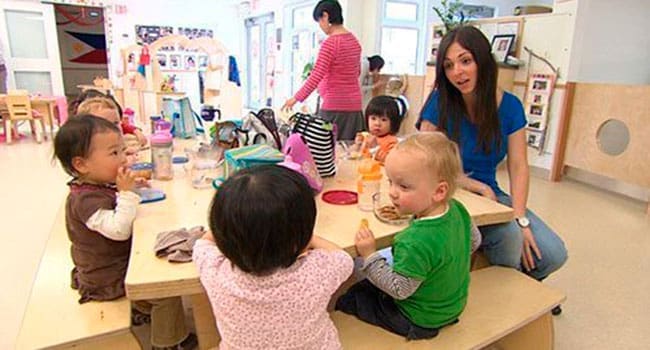 There’s been a push for a universal daycare system in Canada for 40 years. All that time, it’s been called a “crisis.” Now, federal Families, Children and Social Development Minister Jean-Yves Duclos promises we’ll get there “eventually.” Frankly, if we never do, it will be a decided win for families.
There’s been a push for a universal daycare system in Canada for 40 years. All that time, it’s been called a “crisis.” Now, federal Families, Children and Social Development Minister Jean-Yves Duclos promises we’ll get there “eventually.” Frankly, if we never do, it will be a decided win for families.
This so-called crisis has only ever been one to a thin minority of activists – which is precisely why we don’t yet have a universal system. Those who bemoan the lack of a universal institutional daycare system do so on different grounds: it gets mothers of young children working, it helps boost union membership, and – for big business – it creates more workers.
In short, those lobbying for a universal system make up an unholy alliance of left and right – and very little of it has anything to do with actual benefits to children.
In reality, no research shows that a plurality of children in a country benefit from access to universal institutional daycare. Rather, the opposite is true – there are benefits to targeted programs, which is precisely what the federal government now proposes.
Universal daycare supporters generally cite an influential study done in the 1960s in Ypsilanti, Mich., to bolster their claim. The Perry Preschool Project worked with about 58 children for 2.5 hours a day. The child-to-adult ratio was six to one. These were at-risk children whose homes the researchers visited once a week, spending time with the mothers. Tracking the results into the long term, the children who participated in this particular intervention outperformed those who did not.
Were we to follow the example of this research, we would have half-day, targeted, small-scale programs for disadvantaged children. The application of this study for a Canada-wide system is so remote as to be irrelevant.
Duclos may in fact be aware of the research showing adverse affects from universal systems like Quebec’s. Peer-reviewed studies have shown detrimental outcomes for kids there. Behavioural problems amongst children have risen.
The authors of a 2006 study wrote that children “were worse off in the years following the introduction of the universal childcare program.” They continued: “We studied a wide range of measures of child well-being, from anxiety and hyperactivity to social and motor skills. For almost every measure, we find that the increased use of childcare was associated with a decrease in their well-being relative to other children.”
Mothers also fare poorly. When parents must use daycare (because it’s the only funded option), the family experience is limited to getting up early, taking children to care, rushing to pick them up only to feed, bathe and pack them into bed, then getting up early the next morning to do the whole thing again.
Meanwhile, increasing costs of daycare are the result of government meddling. When Ontario moved to full-day kindergarten, it pulled three- and four-year-olds out of daycares and into schools. Those older children were used to subsidize the care of younger children, who are more expensive to care for. Many daycares went under, while others increased rates. Good daycare, regardless of who pays for it, is expensive.
It’s politics, some will say, that we don’t yet have universal daycare. That’s a different way of saying voters don’t want it. This is true. If you ask Canadians what they prefer for a child under six, a strong majority will say it’s best that children be at home with a parent. Yet we know many parents must use daycare.
Those who struggle to find care generally do, whether it be in a centre, with family or in a neighbour’s home – the latter two types of daycare being the kind activists don’t appreciate because they can’t be easily unionized or regulated.
A universal system is an expensive solution in search of a problem. If we never get beyond targeted interventions, Canadians should be thankful.
Andrea Mrozek is program director of Cardus Family.
Andrea is a Troy Media Thought Leader. Why aren’t you?
The views, opinions and positions expressed by columnists and contributors are the author’s alone. They do not inherently or expressly reflect the views, opinions and/or positions of our publication.

